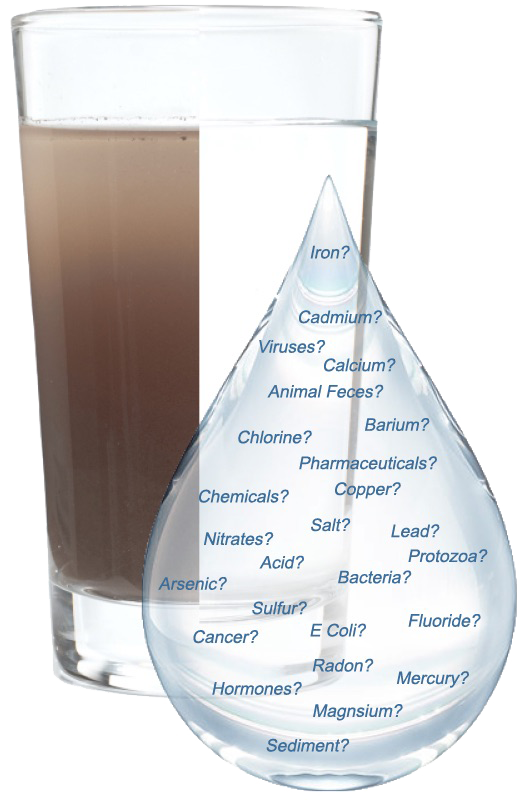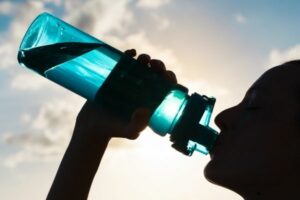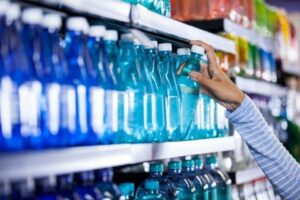Are you having problems with your water quality? Do you notice a water smell? Is your water discolored or brown when it comes out of the faucet? These issues and more can be indications that you have poor water quality and are in need of water treatments today.
Take a look at our water quality breakdown below and select the issue you are having with your water! You’ll be taken to a treatment page to help you learn all about the issue and how National Water Service can help you resolve it.


Those aren’t the only tale-tell signs you have poor water quality, however. Water that is clear and odorless can be just as contaminated as dirty water, just with different issues that still pose risks to you and your family.
You may have dirty or contaminated water if you notice any of the following:
Yes, your poor water quality can affect your laundry, cleanliness, cooking, and how you feel after you bathe. Water quality isn’t just about looks or odors, it’s about overall health and wellness in your home. If you ever notice anything “off” about your water, you should get a water test from National Water Service to confirm the status of your water quality.

There are other ways for you to inspect your water:

What most families don’t realize is that a water treatment system for their home can save them a ton of money on bottled water. In fact, the cost of bottled water for a family of four for one year is the same cost as a reverse osmosis system — which will treat all of your water and last for years.
National Water Service suggests checking your water for any signs of contaminations or ordering a water test. We’ll help you figure out what your water needs to be family safe.
National Water Service has been providing residential & small commercial water treatment, plumbing & well pump services for over 45 years. We specialize in water treatment, filtration & purification solutions as well as general plumbing to ensure clean, safe water for our customers in Maryland, DC & Northern Virginia.
Mon - Thurs
7:00am - 5:00pm
Friday
7:00am - 4:00pm
Sat - Sun
Emergency Service Available
National Water Servicing Corporation — 2025 All Right Reserved ™